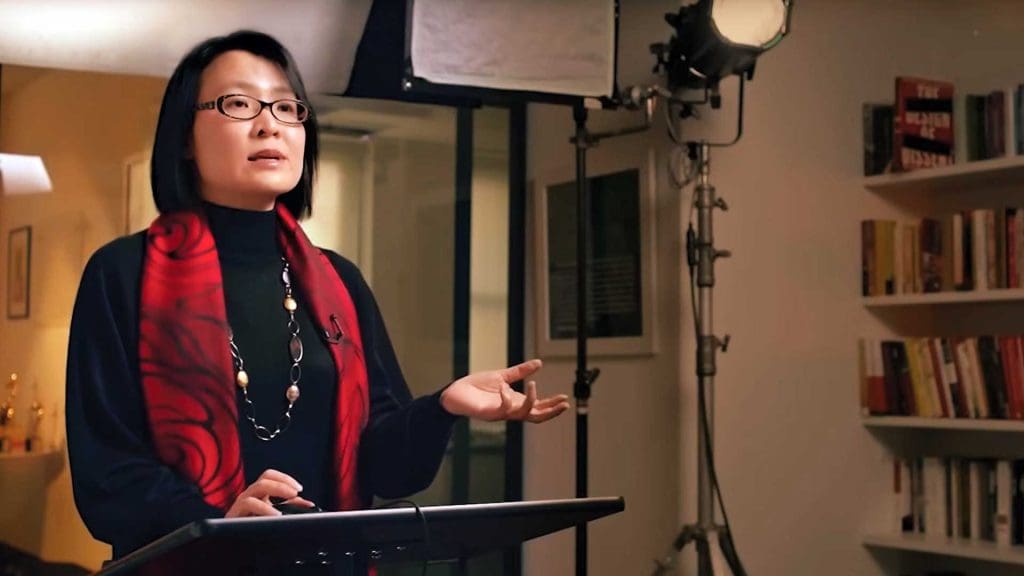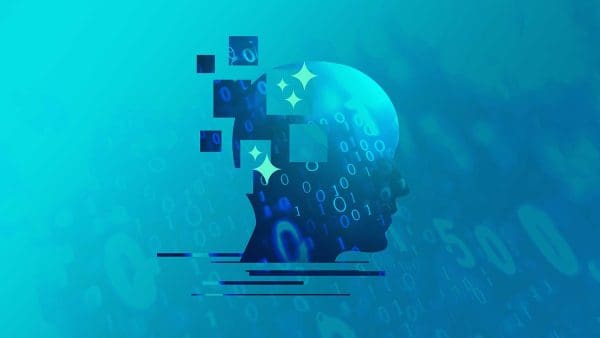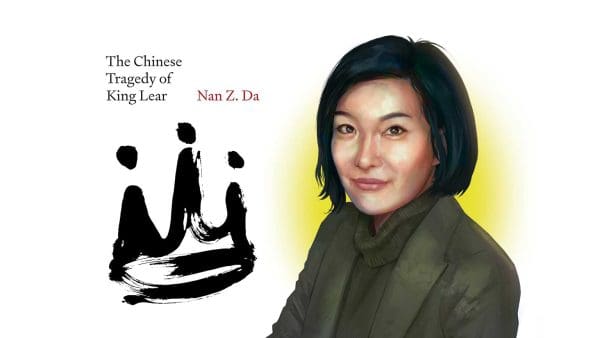
Yuen Yuen Ang says China’s political economy today resembles America’s during the Gilded Age of the late 19th century. Both involve rapid growth, industrialization, corruption, and growing inequality.
Understanding these similarities removes stereotypes and helps bring the two countries closer to understanding each other, says Ang, the Alfred Chandler Chair of Political Economy—the first named professor at the Center for Economy and Society within the SNF Agora Institute.
“If you take stories from the Gilded Age and replace them with Chinese names, you are describing contemporary China,” she says in her new video series, “Economics of China,” created through the Institute for New Economic Thinking, a nonpartisan nonprofit that promotes new ways of thinking about economies and communities.
Taking aim at stereotypes
In seven lively video segments, each about 25 minutes long, Ang takes aim at what she describes as stereotypes and misconceptions about China’s political economy.
“On a micro level it is a lecture series about Chinese development and political economy,” says Ang, who is also on the faculty of the Department of Political Science. “But on a more macro level, what I’m trying to convey is a lesson about perspectives. I think it’s human instinct to ‘other’ any kind of rival. I want to counter that instinct.”
Ang, a longtime China scholar, has authored two books on the country’s governance and economy, How China Escaped the Poverty Trap (2016), and China’s Gilded Age: The Paradox of Economic Boom and Vast Corruption (2020). The new video series, she says, distills her ideas for a wider audience.
“My work is about how China’s political economy has come to the current point,” says Ang. “What I do as a political economist, which makes me different from a pure economist, is I place particular emphasis on the role of politics and governance. What I emphasize is that the United States and China share similar problems of capitalism, but they use starkly different political methods to deal with it.”
Watch Now
In this seven-episode series, Yuen Yuen Ang explains how China escaped poverty and became the second largest economy in the world.
Personal insights
Ang says her perspective was shaped by growing up in Singapore in the 1970s. “China was opening up at the time,” she says, “and Singapore as a post-colonial country was rapidly taking off. That gave me personal insights into what it means to grow up in a country that’s rapidly industrializing.”
She came to the United States on a full scholarship to Colorado College, majoring in political science. She earned a PhD in political science at Stanford University and joined Johns Hopkins in 2023.
Ang recently embarked on new research to better understand China’s development in the wake of the COVID-19 pandemic.
“One of the reasons I was so excited to join Johns Hopkins and the Center for Economy and Society and SNF Agora is that these institutions place a big premium on public-facing scholarship,” she says.
“Though they may seem esoteric, the narratives that politicians adopt to frame bilateral relations have real effects on the ground,” she says. “When people in one society feel ashamed of sharing universal human problems with another society, it is troubling. War begins at the psychological level when individuals cease to perceive a common humanity between us and them.”




